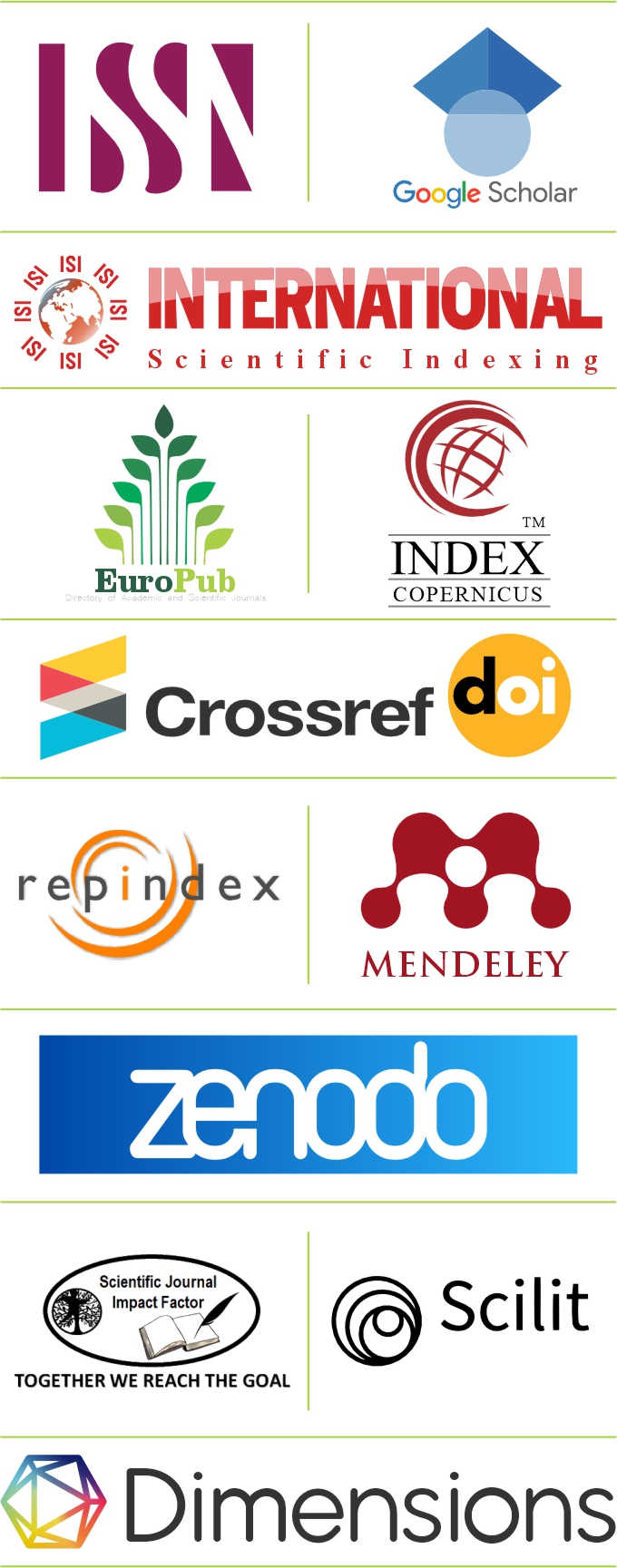Observation of Socio-Emotional Development among Students in Early Childhood Education
DOI:
https://doi.org/10.55737/qjss.553179361Keywords:
Socio-emotional Development, Pedagogical Approaches, Self-awareness, Education, StudentsAbstract
Socio-emotional development is a major concern of teachers’ pedagogical approaches to early childhood education. This research was designed to identify self-awareness, self-management, social awareness, and relationship skills among junior students. The study was descriptive in nature, and the target population was comprised of students from ECE private schools in Rawalpindi. Getting consent for classroom observation was a sensitive process, and a sample of 160 students from twenty schools was considered sufficient. The observational tool was divided into four broad categories of socio-emotional development, i.e., self-awareness; self-management; social-awareness; & relationship skills of students. The observational checklist was pilot-tested on forty students, and face validity was improved through experts’ opinions. Data was collected, scored, tabulated, and analyzed by using percentages. Self-awareness among students was prominent, and pupils could identify their emotions when feeling happy, angry, or sad. Students were kept responsible for their work and focused on their tasks without being distracted. Most of the students have good social awareness and possess relationship skills with peers.
Downloads
References
Afzal, A., & Hussain, N. (2020). The impact of community service learning on the social skills of students. Journal of Education and Educational Development, 7(1), 55. https://doi.org/10.22555/joeed.v7i1.2988
Artman-Meeker, K., Fettig, A., Barton, E. E., Penney, A., & Zeng, S. (2015). Applying an evidence-based framework to the early childhood coaching literature. Topics in Early Childhood Special Education, 35(3), 183-196. https://doi/abs/10.1177/0271121415595550
Babbie, E. R. (2020). The practice of social research. Cengage AU.
Brackett, M. A., Rivers, S. E., Reyes, M. R., & Salovey, P. (2012). Enhancing academic performance and social and emotional competence with the RULER feeling words curriculum. Learning and Individual Differences, 22(2), 218-224. https://doi.org/10.1016/j.lindif.2010.10.002
Bryman, A. (2016). Social research methods. Oxford University Press.
Carden, J., Jones, R. J., & Passmore, J. (2022). Defining self-awareness in the context of adult development: A systematic literature review. Journal of Management Education, 46(1), 140-177. https://doi/abs/10.1177/1052562921990065
Cech, E. A. (2014). Education: Embed social awareness in science curricula. Nature, 505(7484), 477-478. https://doi.org/10.1038/505477a
Creswell, J. W., & Creswell, J. D. (2017). Research design: Qualitative, quantitative, and mixed methods approach. Sage publications.
Denham, S. A. (2006). Social-emotional competence as support for school readiness: What is it and how do we assess it. Early Education and Development, 17(1), 57-89. https://doi/10.1207/s15566935eed17014
Díez-Palomar, J., García-Carrión, R., Hargreaves, L., & Vieites, M. (2020). Transforming students’ attitudes towards learning through the use of successful educational actions. PLOS ONE, 15(10), e0240292. https://doi.org/10.1371/journal.pone.0240292
Durlak, J. A., Weissberg, R. P., Dymnicki, A. B., Taylor, R. D., & Schellinger, K. B. (2011). The impact of enhancing students’ social and emotional learning: A meta‐analysis of school‐based universal interventions. Child Development, 82(1), 405-432. https://doi/abs/10.1111/j.1467-8624.2010.01564.x
Eyler, J., & Giles Jr, D. E. (1999). Where's the Learning in Service-Learning? Jossey-Bass Higher and Adult Education Series. Jossey-Bass, Inc., San Francisco, CA.
Gehlbach, H., & Hough, H. J. (2018). Measuring social emotional learning through student surveys in the CORE Districts: A pragmatic approach to validity and reliability. Policy Analysis for California Education, PACE. https://eric.ed.gov/?id=ED591082
Government of Pakistan. (2008). Draft of national educational policy 2008. http://documents.worldbank.org/curated/en/247161468336079362/From-earlychild-development-to-human-development-investing-in-our-childrens-future.
Jennings, P. A., & Greenberg, M. T. (2009). The prosocial classroom: Teacher social and emotional competence in relation to student and classroom outcomes. Review of Educational Research, 79(1), 491-525. https://doi/abs/10.3102/0034654308325693
Johnson, D. W., & Johnson, R. T. (2009). An educational psychology success story: Social interdependence theory and cooperative learning. Educational Researcher, 38(5), 365-379. https://doi/abs/10.3102/0013189X09339057
Koser, R. (2017). Relationship between socio-emotional environment of institution self-concept and self-esteem of children at elementary level [M.Phil. Thesis]. Department of Education, PMAS Arid Agriculture University, Rawalpindi, Pakistan.
Morrison, B., & Vaandering, D. (2019). Restorative justice in schools: A review of the literature. Review of Educational Research, 89(2), 272-317.
Neuman, W. L. (2014). Why do research. Social Research Methods: Qualitative and Quantitative Approaches. 7th ed. Pearson.
Pane, J. F., Steiner, E. D., Baird, M. D., & Hamilton, L. S. (2015). Continued progress: promising evidence on personalized learning. In RAND Corporation eBooks. https://doi.org/10.7249/rr1365
Schonert-Reichl, K. A., & Lawlor, M. S. (2010). The effects of a mindfulness-based education program on pre-and early adolescents’ well-being and social and emotional competence. Mindfulness, 1, 137-151. https://doi/10.1007/s12671-010-0011-8
Siedlecki, S. L. (2020). Understanding descriptive research designs and methods. Clinical Nurse Specialist CNS 34(1), 8-12. http://doi:10.1097/NUR.0000000000000493
Smith, L. M., & Johnson, R. S. (2018). The impact of early childhood educators on socio-emotional development. Journal of Early Childhood Education, 15(2), 72-89.
Young, M. E. (2002). From early child development to human development. Willhington, DC: World Bank.
Downloads
Published
Issue
Section
License
Copyright (c) 2024 Mahjabeen Babar, M. Imran Yousuf, Tehsin Ehsan, Muhammad Hanif

This work is licensed under a Creative Commons Attribution-NonCommercial 4.0 International License.



